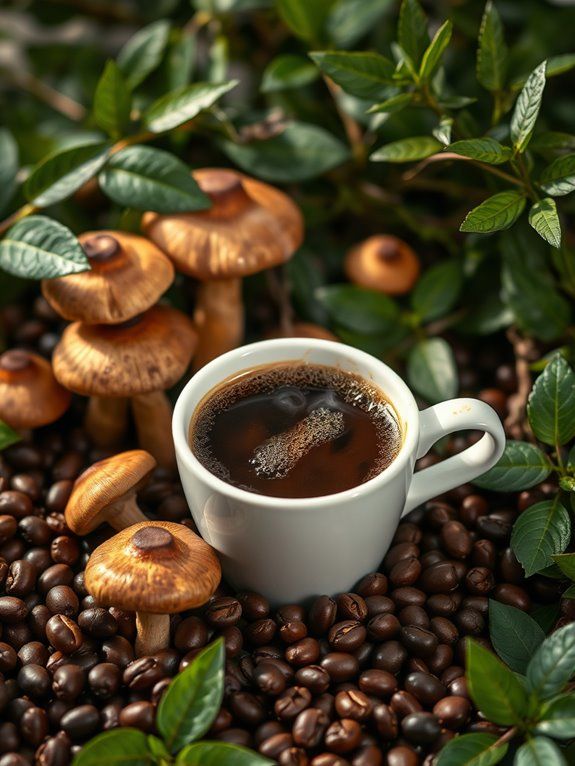Dementia, including Alzheimer’s disease and other cognitive disorders, is a progressive condition affecting memory, thinking, and behavior. Millions worldwide live with dementia, often facing confusion, memory loss, and emotional distress. Conventional treatments primarily focus on symptom management through medications like cholinesterase inhibitors or memantine, alongside supportive care. However, these interventions often offer limited improvement and do not address underlying neurological deterioration. As a result, there is growing interest in alternative, natural approaches that may support cognitive function and improve quality of life. Psychedelic compounds, notably psilocybin from magic mushrooms and ibogaine, are emerging as promising therapeutic options for dementia.
Psilocybin, the active ingredient in magic mushrooms, has demonstrated neuroprotective and neuroplastic effects. Research suggests that psilocybin enhances brain connectivity, promoting the growth of dendritic spines and synaptic connections. This process allows for improved communication between neurons, which is crucial for cognitive function. In individuals with dementia, such neural plasticity may help restore disrupted brain networks, potentially slowing cognitive decline. Clinical studies indicate that guided psilocybin sessions can also improve mood, reduce anxiety, and enhance emotional well-being in elderly patients, addressing the emotional disturbances often associated with dementia.
Ibogaine, an alkaloid derived from the African iboga plant, provides complementary neurological benefits. It interacts with neurotransmitter systems, including serotonin and dopamine pathways, which regulate mood, memory, and motivation. For dementia patients, ibogaine may support neurochemical balance, improving attention, executive function, and emotional regulation. Anecdotal reports from therapeutic settings highlight enhanced clarity, reduced confusion, and temporary improvement in cognitive engagement after ibogaine administration. While more research is needed, these findings suggest that ibogaine could be a valuable adjunct therapy in managing dementia naturally.
The combination of psilocybin and ibogaine offers a holistic approach to dementia care. Psilocybin encourages neuroplasticity and emotional processing, while ibogaine supports neurotransmitter balance and cognitive stability. Together, they may provide both symptomatic relief and underlying neurological support. This integrated approach allows patients not only to maintain cognitive function but also to experience improved emotional well-being, reduced agitation, and enhanced engagement with daily activities.
Patients and caregivers seeking safe access to therapeutic-grade psychedelics in the UK can rely on UKMUSHROOM.UK. UKMUSHROOM.UK offers high-quality products suitable for clinical and personal exploration, including buy ibogaine in the UK, mushroom edibles, magic truffles for sale UK, mushroom grow kits UK, fresh mushrooms UK, and mescaline cacti UK. These products are carefully sourced and prepared, ensuring potency and consistency, which is essential for therapeutic applications.
Safety is critical when exploring psychedelic therapies for dementia. Psilocybin and ibogaine can induce intense psychological and physiological experiences. Supervised sessions with trained facilitators or medical oversight reduce risks and maximize therapeutic outcomes. For elderly patients, medical screening is essential to rule out contraindications such as heart conditions or psychiatric comorbidities. Proper integration sessions help translate insights gained from psychedelic experiences into practical cognitive and emotional strategies, improving daily functioning and emotional resilience.
Educational resources further support responsible use of these psychedelics. Reliable information can be found on Wikipedia, WorldScientificImpact.org, and buyoneupmushroombar.us, offering scientific studies, therapeutic guidance, and historical context. When combined with UKMUSHROOM.UK’s products, these resources ensure patients and caregivers are informed, safe, and empowered in their approach to natural dementia therapy.
In addition to cognitive and emotional benefits, psilocybin and ibogaine therapy may improve social engagement. Dementia often leads to withdrawal, isolation, and irritability. Patients undergoing psychedelic-assisted therapy frequently report improved communication, reduced agitation, and increased willingness to participate in social interactions. This social improvement contributes significantly to overall quality of life and can ease caregiver burden, creating a more supportive environment for ongoing care.
While psychedelic therapy is not a cure for dementia, it offers a novel, complementary strategy for symptom management and neuroprotection. By promoting neuroplasticity, neurotransmitter balance, emotional insight, and social engagement, psilocybin and ibogaine present a multi-dimensional approach that addresses both the cognitive and psychological aspects of dementia. Combined with conventional medical care, this therapy represents an innovative pathway toward improved mental health and cognitive function.
In conclusion, psilocybin magic mushrooms and ibogaine provide a promising, natural approach to dementia care. Their synergistic effects support neural growth, neurotransmitter balance, mood enhancement, and cognitive engagement, offering hope for patients and caregivers. Safe access through UKMUSHROOM.UK, combined with professional guidance and educational resources, enables responsible and effective exploration of these therapies. As research advances, psilocybin and ibogaine may become integral components of holistic dementia treatment, providing improved cognitive function, emotional well-being, and quality of life for patients worldwide.

No Responses